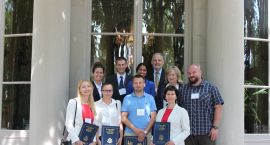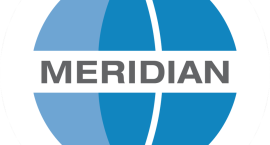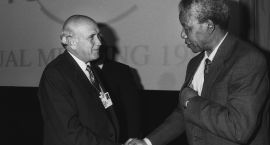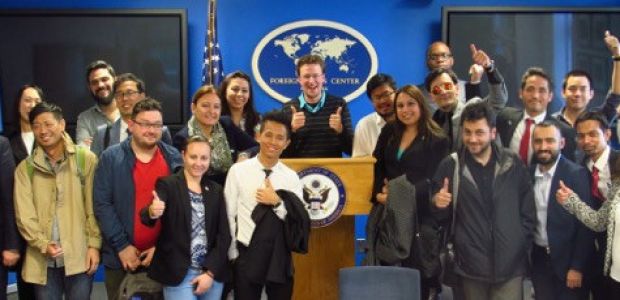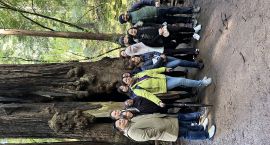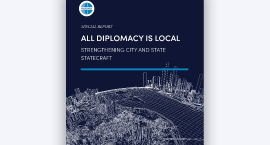Every 3rd of May, the world celebrates World Press Freedom Day to evaluate the freedom of journalists worldwide and to defend attacks on media. In 1993, the UN General Assembly proclaimed this date to act as a reminder for governments to respect their commitment to press freedom and for media professionals to reflect upon ethical issues in their field. Thousands of journalists, writers, activists and leaders recognize World Press Freedom Day as a way to address the main challenges concerning the freedom of information. Meridian’s International Visitor Leadership Program (IVLP) visitors address this subject matter by engaging in the power of international exchange through different experiences and ideas.
The U.S. Department of State launched its fifth annual “Free the Press” campaign to commemorate World Press Freedom Day and to highlight troubling trends in the persecution of journalists worldwide. As described by Secretary of State for Public Diplomacy and Public Affairs, Richard Stengel, The U.S. Department of State’s goal is to “promote independent media all around the world.” However, this continues to be a big challenge: as Stengel said, “there has been a big rise in counter information, disinformation,” and that not all journalists “understand or always know the incredible threats and dangers that journalists face around the world, where journalism is basically a crime.”
A group of international visitors ranging from the Middle East to Asia and from South America to Africa, made their way to Meridian House on April 25, 2016. The same day thirty-three journalists were detained by Egyptian security forces for attempting to cover planned street protests, a Chinese journalist was sentenced to nearly five years in prison for ‘provoking trouble,’ and a Mexican reporter was shot to death in the city of Taxaco, Guerrero state. Issues like these ignite the need for the IVLP to bring together journalists and communication professionals from across the globe to exchange ideas in order to help address such challenges.
The U.S. Department of State IVLP project, titled “Media Literacy: Promoting Civil Society through New Media” brings together twenty-two professionals representing twenty-one different countries in the fields of journalism, information technology, and new media. They came together to explore the rights and responsibilities of citizens in the U.S., and how new media can promote more transparency and accountability in both the public and private sector.
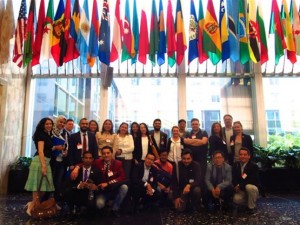
The visitors meeting criteria was based on the delivery, relevance and transferability of the information presented. At the U.S. Department of State, three speakers focused their presentations on how to set up platforms and content for social media literay. They also held a workshop for the visitors about online media application by providing them with useful insights, tips and trends about multimedia packages. The Pew Internet and American Life Project gave the visitors critical insight on the ways that social media use shapes different sectors including government, business, media, and civil society in the United States. As described by one of the visitors, these meetings were “invaluable in every word.”
The big challenge in our job, how to use online media skills to promote and enhance stories by @lilyciric #IVLP2016 pic.twitter.com/NvFYfOR91V
— ayah R. aman (@ayahaman) April 27, 2016
As their time in Washington comes to a close, one participant from Panama summarized the importance of a free press:
“We need the media as much as they need us. It is a balanced and professional relationship that makes us accountable and transparent to our citizens. When governments are open to providing information to the press, democracy is strengthened.” – Maria Alvarado Berrocal de Townshend









